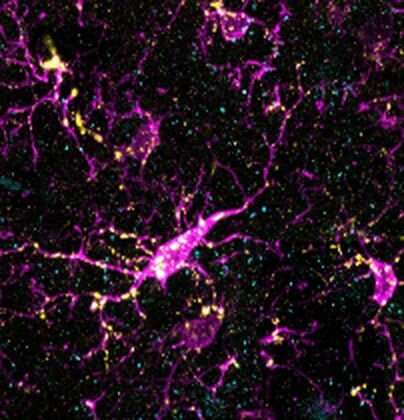Hyperactive immune system gene causes schizophrenia-like changes in mice

Excessive activity of an immune system gene previously linked to schizophrenia reproduces neural and behavioral aspects of the disease in mice, according to a new study publishing on January 14 in the open-access journal PLOS Biology by Ashley Comer and Alberto Cruz-Martín of Boston University and colleagues. The finding provides mechanistic support for the importance of the gene in the development of schizophrenia, and may offer a new avenue for therapy development.
Genetics variants that increase the activity of the C4 gene, which encodes part of the immune system's so-called "complement" cascade, have previously been shown to increase risk for schizophrenia in large genome-wide association studies. However, the mechanism through which such variants might contribute to the emergence of schizophrenia have not been clear because C4 has not previously been experimentally overexpressed.
During normal brain development, it's known that complement sticks to neuronal synapses and attracts microglia (immune cells in the brain), which engulf synaptic material in the process known as "synaptic pruning." When mis-regulated, this process can lead to abnormal connectivity in the brain.
Loss of synapses in the prefrontal cortex is a hallmark of schizophrenia, which led the authors to ask whether an overactive C4 gene might contribute to development of schizophrenia through mis-regulation of complement-mediated synaptic pruning by microglia. When they overexpressed complement C4 in the mouse prefrontal cortex, they found an increase in the level of microglial engulfment of synapses, reduced functional connectivity between neurons, and alterations in the properties of neuronal membranes.
Schizophrenia is characterized by deficits in social cognition and social interactions, effects that often precede the development of psychosis. The authors found that juvenile mice with too much complement C4 reduced the time they spent seeking out their mothers compared to control mice, and that adult mice spent less time than control mice interacting with new cage mates.
Together, these results suggest that the genetic association found between increased C4 gene activity and schizophrenia may be due at least in part to an inappropriate increase in synaptic pruning during brain development. "This critical developmental window may provide an opportunity to intervene to alter the developmental trajectory of schizophrenia," Cruz-Martín, the senior investigator, said. While there are currently few approved drugs that can block the complement system, it is an area of intense pharmaceutical research, and these findings are likely to spur even further interest in this approach.
More information: Ashley L. Comer et al, Increased expression of schizophrenia-associated gene C4 leads to hypoconnectivity of prefrontal cortex and reduced social interaction, PLOS Biology (2020). DOI: 10.1371/journal.pbio.3000604




















